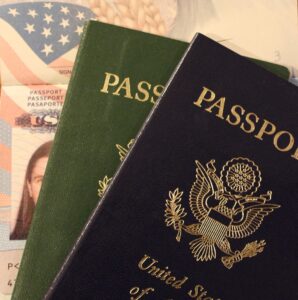Periodically, the Division of Information Technology (DoIT) receives reports of various email scams. These scams might offer good pay for minimal effort, present a past due invoice for payment, among other tactics. Typically, these scams will request your personal information, including:

- name and full address
- cell phone number and personal email address
- resume or other job information
- banking or credit card information
- passport and/or social security number (SSN)
This information can be used to impersonate you by opening credit in your name, or simply to drain funds from your current accounts. Users have also reported receiving fake invoices from well known companies and check or money order scams meant to trick people into sending money directly to the scammers.
From the Federal Trade Commission (FTC) and the Maryland Division of Labor and Industry (DLI), there are several things you can do to protect yourself from identity theft.
-
- Keep your financial records, medical records, and SSN card in a safe place. If you need to get rid of these documents, shred them, use a dark marker to blackout information, or even burn them.
- Collect your postal mail as soon as it arrives. Do not leave it where the addresses can be seen (such as on a seat in your car).
- Never give out your SSN or bank account information over the phone.
- If you are filling out a document that requires your SSN or bank account information, contact the organization directly. Ask questions such as:
- Why is this information needed?
- How is this information protected?
- Can a different identifier be used instead?
- Can the last four digits of my SSN be used instead?
- Carry a minimal amount of personal information and debit or credit cards with you.
If you receive any emails, including those from your professors, requesting your SSN or financial information, immediately forward the email and its headers to security@umbc.edu. We will assist you in verifying the authenticity of these messages. Instructions on how to forward email headers can be found here: https://wiki.umbc.edu/pages/viewpage.action?pageId=1867970
If you think that you are a victim of Identity theft, contact the Maryland Office of the Attorney General, Division of Consumer Protection at 410-528-8662 or visit https://www.marylandattorneygeneral.gov/Pages/CPD/default.aspx.
In addition to contacting the Division of Consumer protection, the Maryland Division of Labor and Industry suggests that you do the following:
- Request copies of your credit report from Experian, Equifax, and TransUnion, the larger credit reporting agencies, and dispute any inaccuracies.
- Contact the creditors to close the unauthorized accounts, change passwords or restrict access to the accounts.
- Place fraud alerts and a victim’s statement on each of your credit files maintained with the major credit reporting agencies.
- Request that the credit reporting agencies remove any inquiries referencing the fraudulent accounts.
- File a report with your local police department.
- File a complaint with the Federal Trade Commission:
- File a complaint with the Commissioner of Financial Regulation.
- You may place either a fraud alert or a security freeze on your consumer credit report by contacting each consumer credit reporting agency (Experian, Equifax, and TransUnion) and requesting the appropriate action.
For more information about identity theft (including information about your credit reports) visit:
- https://www.consumer.ftc.gov/articles/what-know-about-identity-theft
- https://www.dllr.state.md.us/finance/consumers/idtheft.shtml